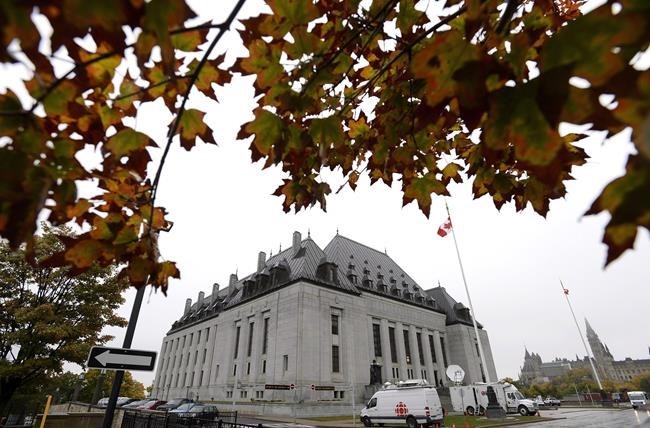OTTAWA — The Supreme Court of Canada says a superior court justice has jurisdiction to hear and decide a bail application from a young person in certain circumstances, a ruling intended to ensure consistency across the country.
The unanimous decision Friday flows from a case in which a youth was charged with second-degree murder arising from a shooting at Alberta's Cold Lake First Nation linked to the sale of drugs.
The young person's identity is protected under the Youth Criminal Justice Act.
The Crown served notice it would seek an adult sentence in the case if the accused were convicted, and he chose to be tried by a superior court judge without jury.
The youth's lawyer sought bail in the Court of Queen's Bench of Alberta, but the judge dismissed the application, ruling the Provincial Court of Alberta, the designated youth court for the province, had exclusive jurisdiction.
In its decision, the Supreme Court said when a superior court judge becomes a youth justice court judge under provisions of the youth justice act, the judge has jurisdiction over the full proceeding, including a pretrial application for bail.
However, this jurisdiction is not exclusive, Justice Russell Brown wrote on behalf of the top court.
A youth justice court judge could also hear a bail application in such cases, something Parliament intended as a measure of flexibility, the Supreme Court said.
This is "particularly significant" for young people in rural areas, especially Indigenous youth for whom provincially designated youth justice courts will be more accessible than a superior court, Brown wrote.
This report by The Canadian Press was first published Jan. 29, 2021.
The Canadian Press




